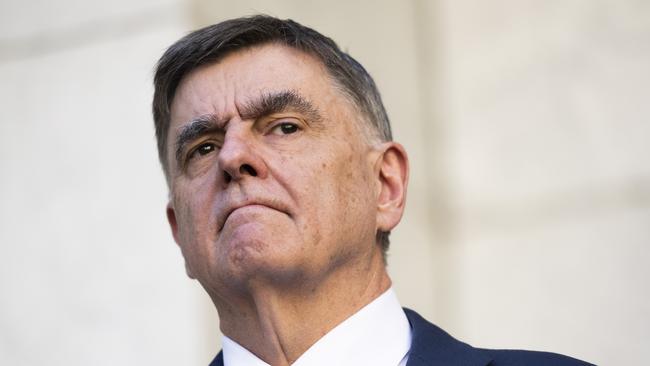Coronavirus Australia: Hospitals facing 18-month backlog of elective surgery
A national backlog of elective surgery cancelled due to coronavirus is likely to take as long as 18 months to clear.

Hospitals will be under pressure to clear a backlog of elective surgery that is likely to take as long as 18 months to clear, as the nation’s Chief Health Officer gave the green light for surgeons to resume all non-urgent operations.
In states with low numbers of cases of COVID-19, or none at all, the elective surgery resumption will ramp up quickly, while NSW is taking a cautious approach and will proceed more slowly.
There will be an immediate full resumption of all elective surgery in South Australia, while Western Australia announced it would allow 50 per cent all categories of elective surgery to proceed from Monday. It’s expected that Victoria and Queensland will also shortly allow half of all elective surgeries to go ahead, while other states and territories are yet to decide on a timetable.
Chief Health Officer Brendan Murphy said on Friday there were now only about 50 patients in hospitals around the country suffering with COVID-19, with 12 on ventilators. “Our hospital capacity is around 50 to 60 per cent so there is now pretty good room for further expansion (of elective surgery),” Professor Murphy said.
Hospitals around the country are currently able to conduct elective surgery across all categories, capped at 25 per cent of capacity.
The changes come as the number of new COVID-19 infections nationally increased by 30 to a total of 7071 cases. There were eight new cases in NSW, while Victoria continues to struggle with local outbreaks, recording 20 new cases. There were no infections recorded in WA, SA, the ACT or the Northern Territory, while authorities in Queensland were on high alert after two new cases were recorded, one in an aged-care worker.
The North Rockhampton Nursing Centre in central Queensland was placed in lockdown on Friday after the staff member tested positive. The state mobilised a rapid response team to the facility as testing was undertaken of 115 residents and 180 healthcare workers.
On elective surgery, Private Hospitals Association chief Michael Roff said the private sector would continue to take over elective surgery from public hospitals to help clear the backlog of operations, provided that was allowed by state governments in line with caps on surgery.
But he said waiting lists were growing longer each week and the backlog of surgery could take as long as 18 months to clear.
“The backlog will continue to grow because assuming that not all states will move to a full resumption for a couple of weeks, maybe four to six weeks, then while ever the system is performing at below full capacity there will be a continued backlog forming,” Mr Roff said.
A paper published in the British Journal of Surgery on Friday estimated millions of operations worldwide have been suspended because of COVID-19. The paper estimated that in Australia, about 67,000 operations were cancelled each week since elective surgery was suspended in mid-March.
The paper estimated that almost 400,000 surgery cases will have to be cleared after the COVID-19 disruption ends.
It said that if hospitals increased the number of surgeries performed by 20 per cent compared to pre-pandemic activity, it would still take at least 22 weeks to clear the backlog.
For each week elective surgeries were suspended, patients were placed at risk, said Daniel Cox, a surgical research fellow at the University of Melbourne.
“Each additional week of disruption to hospital services results in up to 67,000 further operations being cancelled,” Dr Cox said.




To join the conversation, please log in. Don't have an account? Register
Join the conversation, you are commenting as Logout